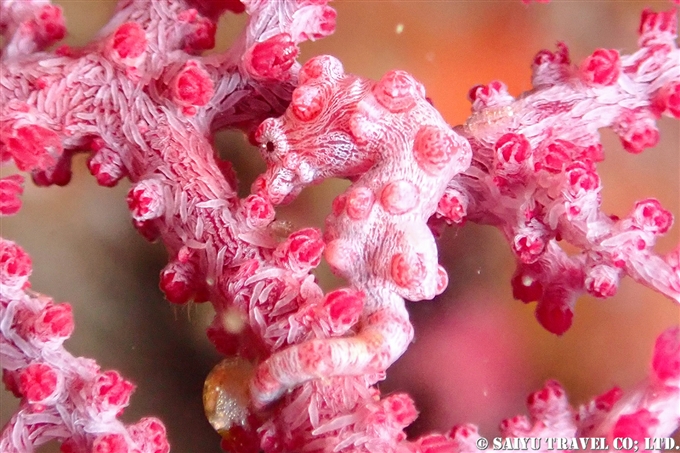
This is a report of a diving trip in Amami Oshima in May. The main focus of this trip was for observing the white-spotted pufferfish, Torquigener albomaculosus. Ten of the 15 dives were to witness the process of circle-making pufferfish, and the remaining 5 dives were planned for seeing the other spectacular creatures of Amami.

This is the season for broadclub cuttlefish spawning. Originally, I was planning to observe the broadclub cuttlefish but this year their numbers was so small that we could not see group spawning that typically happens. Behind the Porites cylindrica are some broadclub cuttlefish eggs. You can see the baby inside, it’s still so very small.
コブシメの体色変化 color change of Broadclub cuttlefish
The amazing ability of the broadclub cuttlefish to change colors is interesting. When I get too close to it, it expresses its bad mood and turned black, but after I moved off a little, it started to mimic the surrounding, lol!
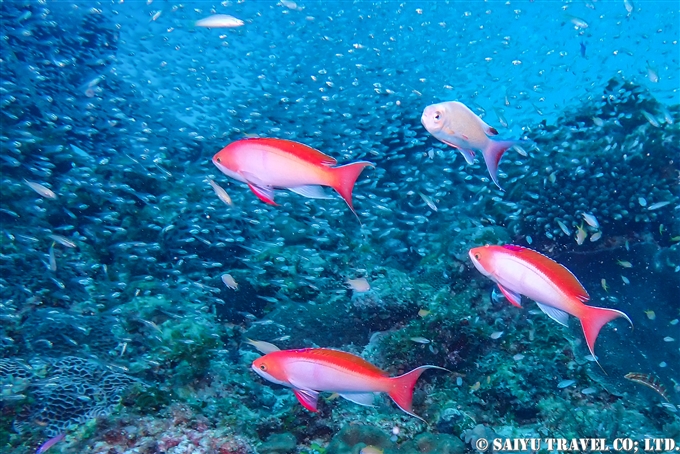
Swimming male Red Fairy Anthias Pseudanthias cooperi, which were at the bottom of a sandy area. The school of Luminous cardinalfish, Rhabdamia gracilis so beautifully swimming and framing the background.
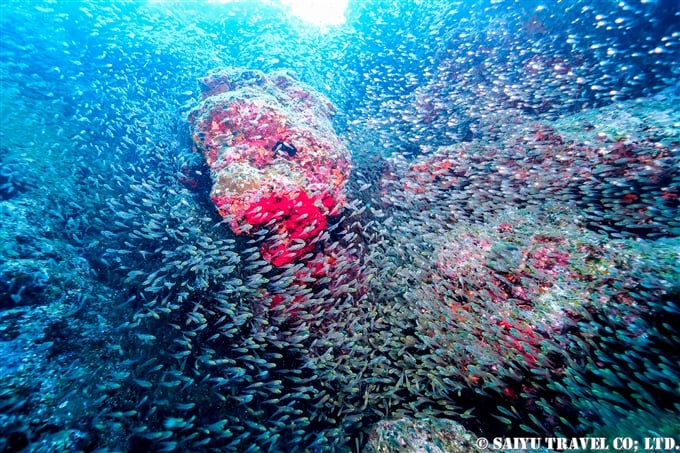
Right at the edge of the reef, a big school of Golden sweepers, Parapriacanthus ransonneti.
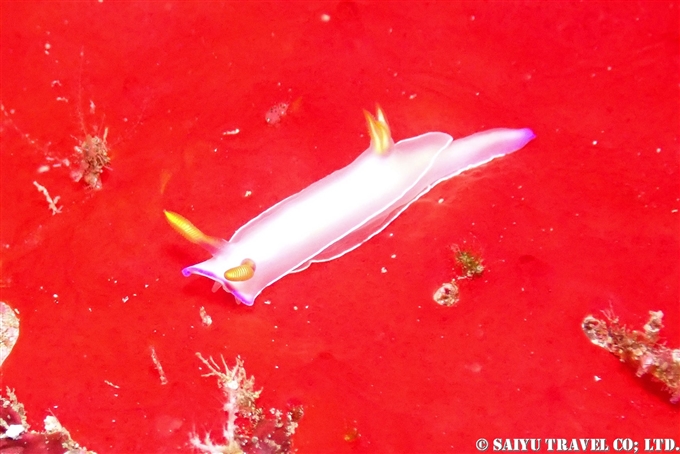
I photographed the nudibranch Hypselodoris bullockii on a red sponge. It looks like a pattern on a Japanese traditional cloth.
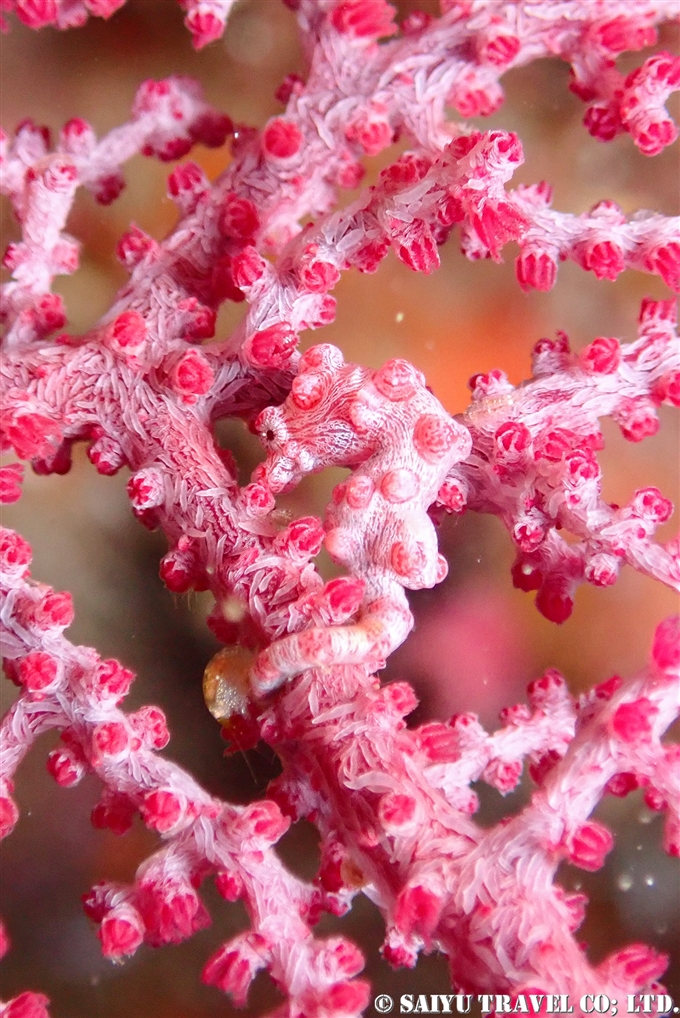
One of the highlights of this diving spot is that we can see pygmy seahorse, Hippocampus bargibanti at a shallow depth of 15m. This pygmy seahorse, which attaches to the red or yellow soft coral. It will mimic with amazing accuracy and becomes the same color as the coral, even mimicking the polyps. When it was first pointed out to me in Ogasawara, I could not even see it, but now, after several opportunities to see it, over and over again, I have gotten just a little better at spotting it.

And this is the “Great Buddha” Coral. It is a large common coral group called Pavona clavus.

The Amethyst anthias, Pseudanthias pascalus schooling above the coral.

The breeding colors of an Amethyst anthias male with a yellow tail
ハナゴイ乱舞 Purple queen wild dance(Videography by Chizuko MURATA)
It was so spectacular to see the little Amethyst anthias, which looked like falling rain at times.
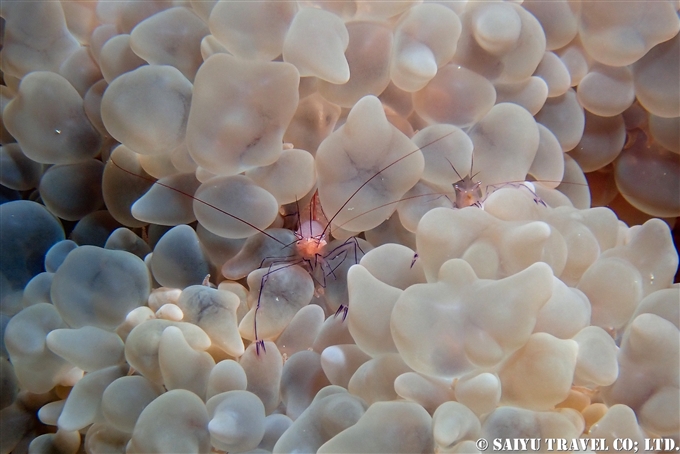
The Bubble coral shrimp Vir philippinensis. It was holding an egg.
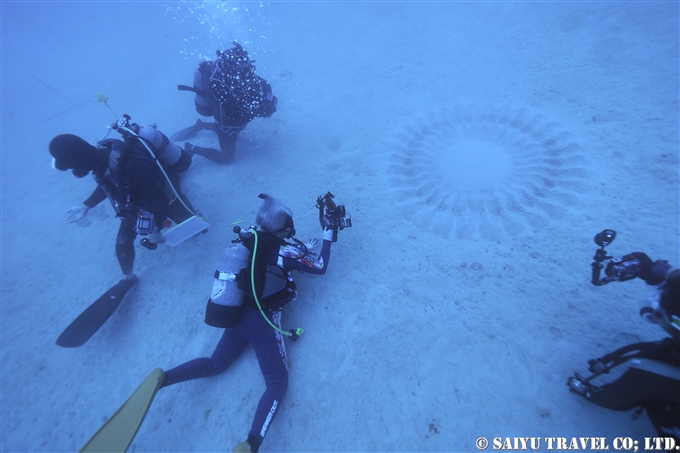
And the highlight of this tour, is the observation of the white-spotted pufferfish circles. The ocean bottom is a fine sand, and you have to be very careful about not messing it up. After staying a while, it will become cloudy.
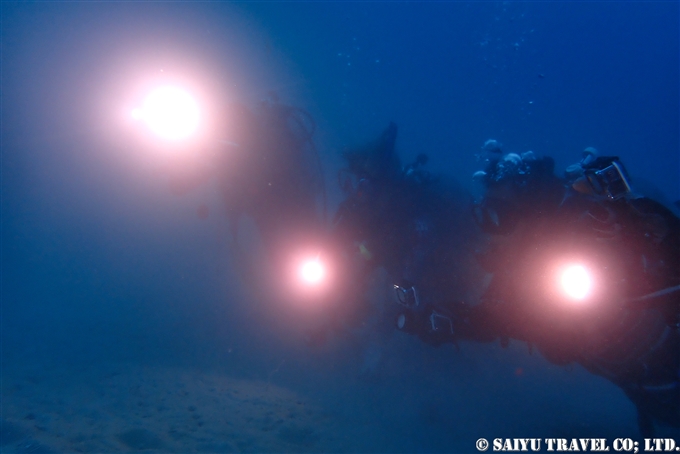
A rainy day with poor water clarity, looks like this. Because of the depth and the risk of having bad visibility, those who want to observe the pufferfish closely, should make sure they have multiple diving chances.
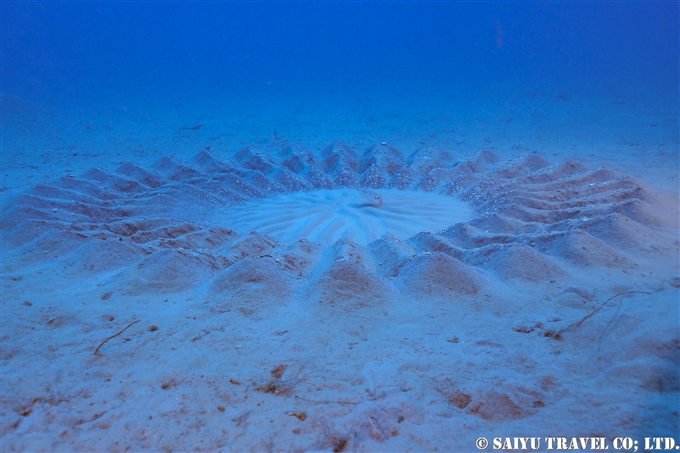
Putting the finishing touches on the pufferfish’s circle.
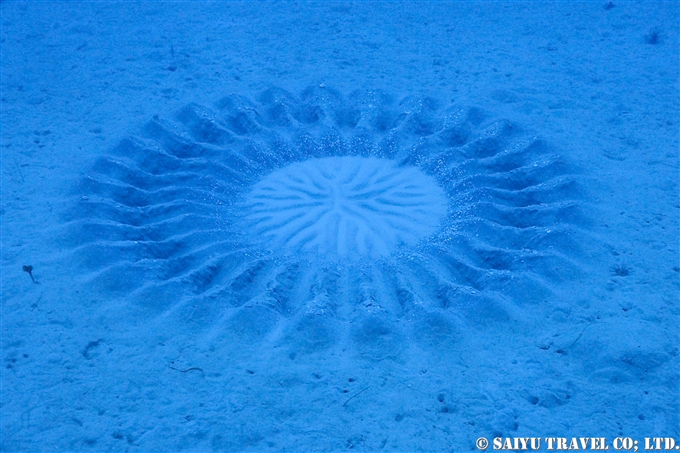
This is the completed circle. For these small fish to do all the work using their bodies, who work on the circle and don’t seem to look at it from above, it is quite an impressive feat.
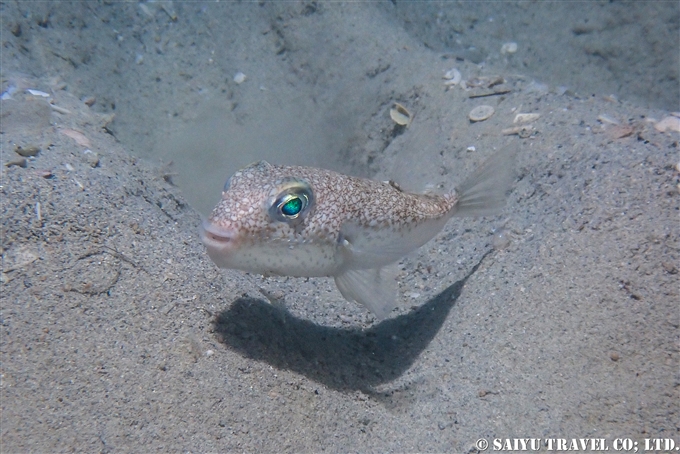
Now, it is just about attracting the female. This is the diligent male white-spotted pufferfish.
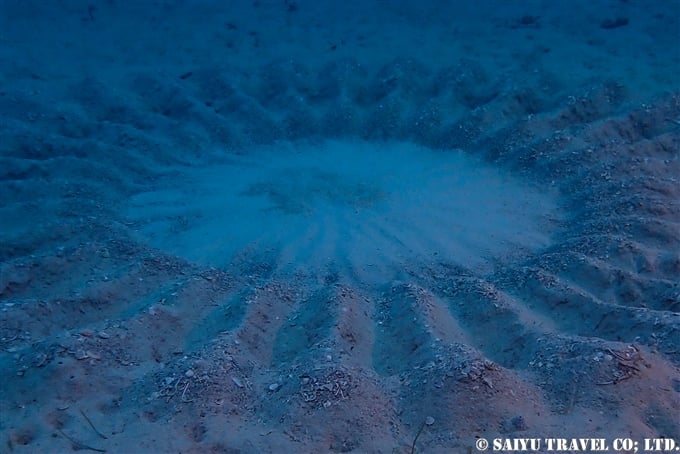
The next day, in the center of the circle where the eggs were laid (the gray mass in the middle). After this, the male will take care of the eggs and the circle will no longer be maintained.
I stayed at Amami Oshima for 6 consecutive nights, and I was really looking forward to the daily meals. Every day is a glorious feast! Octopus, cuttlefish, yellowfin tuna, other seabream species, green turban, … the list goes on!
奄美大島ダイビング-Amami-Oshima-Scuba-Diving-18.jpg)
It was rainy season in Amami Oshima, but during this diving tour we made sure to plan a way to enjoy the ocean and the bounty of food it provides. Thank you to everyone who joined the tour, to our underwater guide-Dive Species Amami, Mr and Mrs. Suwa!
Images & Text: Mariko SAWADA
Some photographs and video: Chizuko MURATA
Observation: May 2022, Amami-Oshima
Special Thanks: Dive Species Amami, Mr. Homare SUWA
Tags: Diving in Ogasawara Islands, hippocampus bargibanti, Wildlife in Japan, 奄美大島, Scuba diving in japan, Wildlife of Japan, Scuba diving tour in Japan, Scuba diving in Ogasawara, Bonin Islands, amami hoshizora fugu, Wildlife tour of Japan, White-Spotted Pufferfish, Diving tour of Japan, Scuba diving Amami Oshima, Japanese pygmy seahorse, Hippocampus japapigu, Amami Oshima, pygmy seahorse



